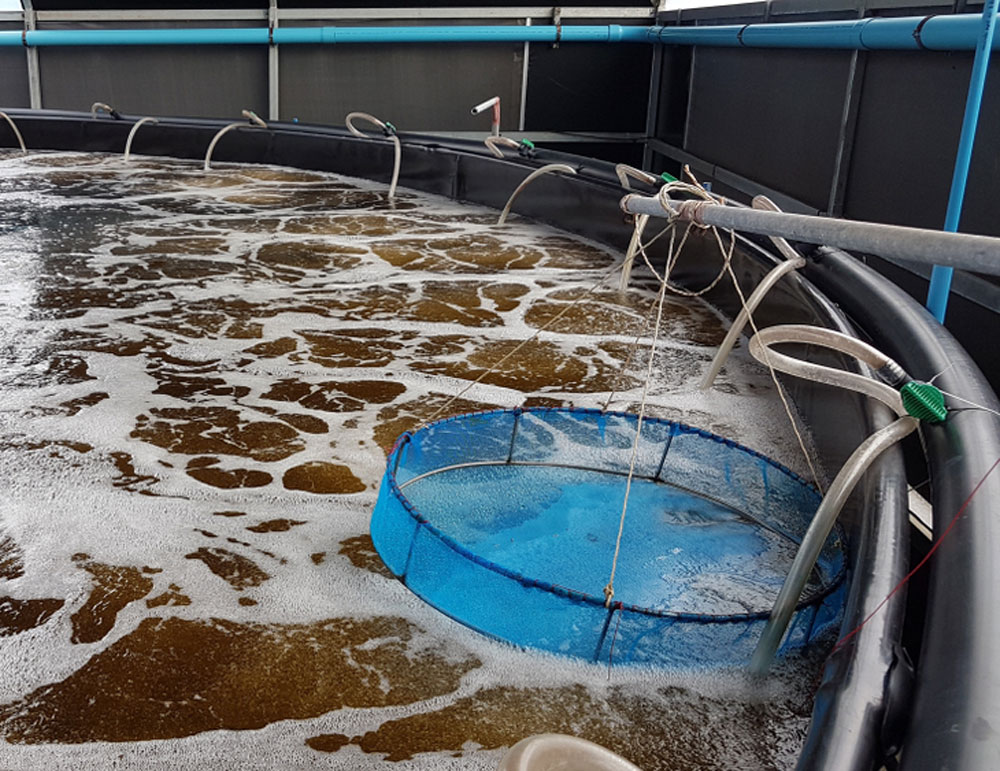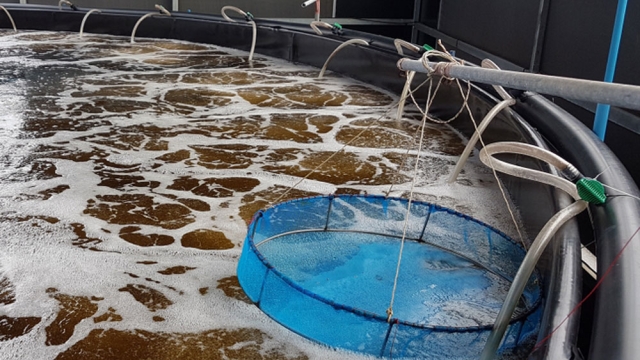
As global demand for seafood continues to rise, the aquaculture industry stands at a critical juncture, facing both immense opportunities and significant challenges. Innovations in aquaculture technology are not only essential for meeting the dietary needs of a growing population but also for ensuring sustainability and environmental stewardship. The integration of advanced technologies in aquaculture can enhance productivity, reduce environmental impact, and improve fish health and well-being, creating a more resilient industry for the future.
At the forefront of this transformation is The Rokter, an authoritative hub dedicated to aquaculture technology and sustainability insights. With a wealth of in-depth blog posts and industry resources, it serves as a valuable platform for aquaculture professionals looking to stay informed about the latest trends and breakthroughs. The dedicated forum fosters a collaborative environment where experts can share knowledge, discuss challenges, and explore innovative solutions to propel the industry forward.
Introduction to Aquaculture Technology
Aquaculture technology is transforming the way we approach the cultivation of aquatic animals and plants for food, restoration, and other uses. As the global population continues to rise, traditional fisheries face pressures that make sustainable practices more vital than ever. Innovations in aquaculture not only aim to increase productivity but also focus on minimizing environmental impact and improving the health of marine ecosystems. This sector presents opportunities for growth while addressing the critical challenges of food security and resource management.
At the heart of aquaculture technology are several advancements, including automated feeding systems, water quality monitoring tools, and sustainable breeding techniques. These tools help aquaculture operations optimize production processes, maintain the health of aquatic species, and ensure compliance with environmental regulations. By utilizing data-driven insights, aquaculture professionals can enhance efficiency and reduce waste, ultimately contributing to the sustainability of the industry.
Rokter’s aquaculture efficiency tools
The Rokter serves as an authoritative hub for aquaculture technology and sustainability insights. It offers a wealth of resources for professionals seeking to stay informed about the latest innovations and best practices in the field. Through in-depth blog posts and an active forum, The Rokter fosters a community of knowledge sharing and collaboration, empowering aquaculture stakeholders to embrace technology and drive the future of sustainable aquaculture.
Key Innovations in Aquaculture
Recent advancements in aquaculture technology are transforming how we approach fish farming and sustainable seafood production. Innovations such as recirculating aquaculture systems, or RAS, allow for greater control over water quality and fish health while minimizing water usage. This closed-loop system recycles water, reducing environmental impact and boosting efficiency, making it an appealing option for both large-scale operations and smaller farms.
Another significant innovation is the integration of artificial intelligence and machine learning in aquaculture management. These technologies enable farmers to monitor environmental conditions, feed efficiencies, and fish behavior in real-time. By analyzing data collected from various sensors, farmers can make informed decisions, optimize feeding practices, and predict potential disease outbreaks, ultimately leading to healthier fish and enhanced yields.
Aquaponics is also gaining traction as a sustainable aquaculture solution that combines fish farming with hydroponics, the practice of growing plants in nutrient-rich water. This symbiotic relationship allows for the efficient use of resources, as fish waste provides organic nutrients for plants, while plants help filter and purify the water for fish. This innovative approach not only produces fish and vegetables but also promotes sustainability and resource conservation in aquaculture practices.
Sustainability Practices for the Future
The future of aquaculture hinges on the adoption of sustainable practices that minimize environmental impact while maximizing productivity. One emerging trend is the integration of recirculating aquaculture systems, which optimize water use by continuously filtering and reusing water within the farming system. This method not only reduces water consumption significantly but also decreases the risk of contaminating local water bodies with excess nutrients and pathogens. By investing in advanced filtration technologies, farms can maintain healthier ecosystems and ensure cleaner outputs.
Another crucial sustainability practice involves selective breeding for disease resistance and improved feed efficiency. By focusing on breeding programs that prioritize these traits, aquaculture operations can reduce reliance on antibiotics and minimize feed waste. This approach also contributes to healthier fish and shellfish populations, resulting in higher yields and better quality products. The use of alternative feed ingredients, such as insect meals and plant-based proteins, is gaining traction, providing a more sustainable approach to sourcing nutrition for aquaculture species.
Incorporating monitoring technologies and data analytics can further enhance sustainability in aquaculture. These tools enable real-time tracking of water quality, fish health, and growth rates, allowing farmers to make informed decisions quickly. By leveraging these insights, aquaculture professionals can optimize feeding strategies, reduce resource use, and enhance overall farm management practices. The Rokter serves as a vital resource for industry leaders, offering insights and fostering collaboration within the aquaculture community to drive these sustainable innovations forward.
The Role of Community in Aquaculture
The aquaculture industry is increasingly recognizing the importance of community engagement and collaboration. As aquaculture practices evolve, fostering a sense of community among stakeholders—from farmers to researchers—becomes crucial for driving innovation and sustainability. Communities enable the sharing of best practices, experiences, and valuable insights that can lead to more efficient and environmentally friendly aquaculture methods.
Online platforms like The Rokter serve as vital resources for connecting aquaculture professionals. They provide an authoritative hub for discussions on technology and sustainability, allowing users to access in-depth blog posts, industry resources, and a dedicated forum. This connectivity enables members to collaborate on challenges, share breakthroughs, and collectively address issues such as disease management, water quality, and environmental impacts in aquaculture.
Furthermore, local communities can play a significant role in the success of aquaculture projects. Engaging local populations not only enhances the acceptance of aquaculture initiatives but also ensures that practices align with community needs and environmental conditions. By embedding aquaculture systems into the fabric of local economies and cultures, the industry can promote sustainable seafood production while also strengthening community ties and resilience.
Looking Ahead: Trends and Predictions
As we move into a new era for aquaculture technology, sustainability will remain at the forefront of industry innovation. With growing global demand for seafood and increasing concerns over environmental impacts, the integration of sustainable practices into aquaculture systems is paramount. Technological advancements, such as closed-loop systems and biosecurity measures, will help minimize waste and reduce the ecological footprint of fish farming. Companies will need to embrace these practices not only to meet regulatory requirements but also to appeal to environmentally conscious consumers.
Another key trend is the integration of artificial intelligence and data analytics into aquaculture operations. These technologies will enable farmers to optimize feeding practices, monitor water quality in real-time, and predict fish health outcomes more accurately. By harnessing big data, aquaculture professionals can make informed decisions that enhance productivity and reduce losses. The Rokter is poised to become an essential resource for professionals seeking to leverage these advanced technologies for sustainable growth.
Finally, as the global aquaculture industry expands, collaboration among stakeholders will be critical for success. The emergence of dedicated forums and platforms for knowledge sharing, like those offered by The Rokter, will foster a sense of community among aquaculture professionals. This collaboration will drive innovation and help tackle common challenges, from disease management to supply chain logistics. In the coming years, we can expect to see a stronger network of professionals working together to revolutionize aquaculture practices, ensuring a sustainable future for the industry.

